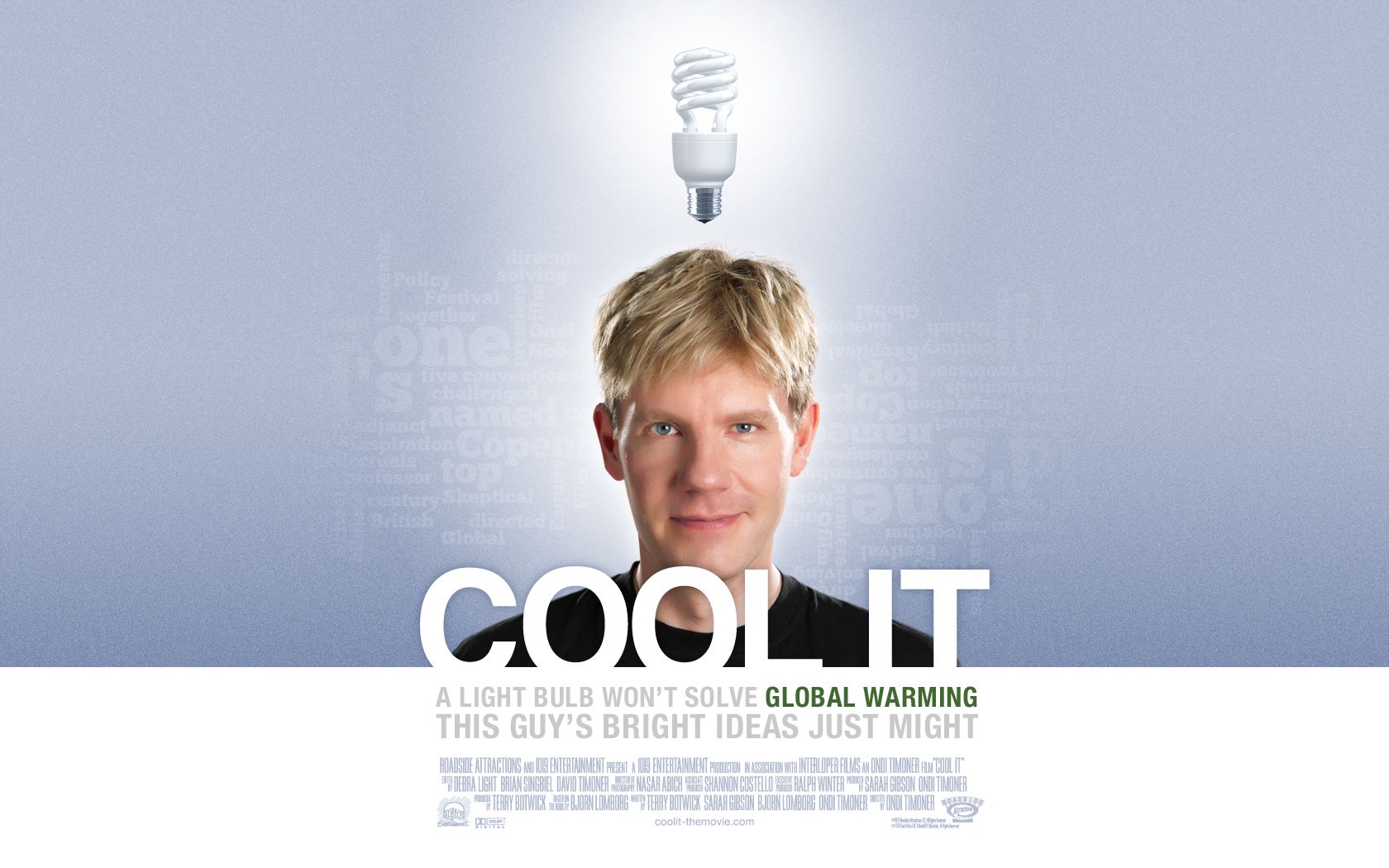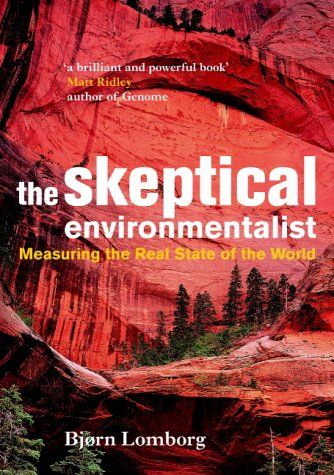
Fewer topics in contemporary science and technology policy have generated as much controversy or vociferous debate as global warming (more recently branded as climate change) and more importantly, how to mitigate its effects. Recent international treaties such as The Kyoto Protocol and conferences such as last December’s United Nations Climate Change Conference in Copenhagen have largely paid lip service towards actionable change and technology aimed at eradicating the precursors and causes of global warming. In the middle of this stalemate is an increasingly hostile rhetoric that has bifurcated into two divergent, unyielding camps—either you believe climate change and greenhouse emissions are a fraud, period, or you believe the problem is so imminently dire that surely, the end of the world is nigh. This dichotomy was no more apparent than during last year’s ”Climategate” controversy, in which hacked emails leaked from the University of East Anglia’s Climatic Research Unit in England were interpreted, depending on which report you read, as scientific fraud and tampering or reinforcement for climate science. Perhaps it is time, as the eponymous title of our latest Editor’s Choice suggests, for us all to Cool It. An environmental film about 21st Century problems, and the modern solutions they necessitate, Cool It presents an unapologetic, practical approach towards global warming and the problems that eclipse it. It’s time we all listened. ScriptPhD.com continues our ongoing “It’s Not Easy Being Green” series with a review of this thought-provoking, conversation-starting film. After seeing a recent screening in Los Angeles, we are proud to give Cool It our blog’s rare highest honor—Editor’s Choice. Join the conversation now under the “continue reading” cut.
A (Very) Brief History of Climate Change in Media and Entertainment

In 1896, Swedish chemist Svante Arrhenius made the first observation that fossil fuel combustion had a correlation to global warming. Discovery Channel has a terrific interactive on the history of scientific discovery in climate change here. It wasn’t until 1962, when a serialized novel called Silent Spring by Rachel Carson was published in The New Yorker magazine, that the issue took forefront in the public media. Considered one of the most influential works in the area of climate change, Silent Spring gives a meticulous account of how the pesticide DDT enters the food chain and accumulates in the fatty tissues of animals, including human beings, and causes cancer and genetic damage. Because of her book, President John F. Kennedy ordered his Science Advisory Committee to look into the book’s claims (use of DDT has since been banned, much to the consternation of bedbug sufferers everywhere!). President Nixon went on to pass the Clean Air Act and create the Environmental Protection Agency, which now has the power to regulate harmful greenhouse gas emissions. Another major milestone for climate change in modern media was the 2006 release of Al Gore’s Oscar-winning film An Inconvenient Truth, which has been given credit not only for re-energizing the environmental movement, but for raising the profile of global warming. (Cool It has been referred to as an “anti-Inconvenient Truth,” but we’ll get to that in a moment.) Marketing and advertising are never far behind the cultural zeitgeist, as green branding has been one of the most successfully growing sectors in the industry. An article in Advertising Age in April of 2010 listed the 10 Green Marketing Milestones of our time.
Who is Bjørn Lomborg and Why is He So Controversial?

In 2001, a then-unknown adjunct professor at the Copenhagen Business school named Bjørn Lomborg published a book called The Skeptical Environmentalist, which claimed that not only were some of the more dire claims of pending environmental catastrophe exaggerated, but that they were flat-out wrong. Though a carefully-researched volume, the central thesis of Environmentalist was anathema to the academic climate community, and caused an immediate hailstorm on both sides of the climate change spectrum. Accusations of scientific dishonesty, one of the most austere charges within academia, were brought forth by several environmental scientists to the Danish Committees on Scientific Dishonesty. Their finding was mixed, ruling that The Skeptical Environmentalist was scientifically dishonest, but absolving Lomborg himself due to his “lack of expertise” in the field. The decision was later annulled by the Ministry of Science, Technology and Innovation, citing a lack of proof and specific standards. Lomborg has remained a polarizing, contentious figure ever since.

Lomborg, since named one of the 100 most influential people by Time magazine, is now the director of the Copenhagen Consensus Center, where he brings together some of the world’s top economists, including five Nobel laureates, to brainstorm how to solve the world’s most pressing problems. He followed up his first book with another eco-centered piece, Cool It, that offers an alternative platform for the trillions of dollars of current funding aimed at counteracting (often ineffectively) the effects and sources of global warming. In no way denying the very real phenomenon of climate change, Cool It is instead a polemic on contemporary global problems that merit our action and attention right now and that, if solved, will simultaneously obviate climate effects as a bonus. With the help of Director Ondi Timoner, Lomborg has translated Cool It into an extremely interesting, thought-provoking and entertaining documentary. ScriptPhD.com got a sneak peek in Hollywood a couple of weeks ago.
REVIEW: Cool It
ScriptPhD GRADE: A
“Fear has been ruling the climate debate,” declares Lomborg in the opening minutes of Cool It, proclaiming what is a sort of mantra for this film. Fear sells. Fear opens eyes. Fear declares attention. (Read our piece on The Science of Fear.) But fear drowns out messages in hyperbole and bombast. Far from decrying the looming reality of climate change and global warming, Lomborg is simply suggesting that it isn’t the impending catastrophe that media and scientists have ingrained us to believe. Fueling these misconceptions, Lomborg believes, are popular culture messages and movies that simply exaggerate claims, and do nothing to add to a productive conversation about global warming. Take a look, for example, at the opening film shown at the United Nations Climate Change Conference 2009 (COP15) in Copenhagen from the Ministry of Foreign Affairs of Denmark and decide for yourselves if its hyperbolic, fear-fueled message is more about solutions or rhetoric:
This, a commercial for planestupid.com that attempts to correlate airplane emissions to extinction of polar bears:
Turns out that the Kyoto Protocol, if enacted to its full potential, would only save one polar bear per year lost to the effects of global warming. This does nothing to ameliorate a far bigger problem—we shoot 300-500 polar bears to death every year!
“When is something fashionable and when is it rational?” Lomborg asks us. In 2010, hundreds of millions of people participated in Earth Hour, a collective global undertaking to turn off our lights for an hour. Many of the participants undoubtedly lit candles instead, which unfortunately emit twice the CO2 emissions of a light bulb! The 20 trillion in proposed global funding, even if appropriated, will only result in a 0.1 ºF temperature effect by the end of the century. Cap and trade, the Kyoto Protocol and even this past year’s Copenhagen conference, Lomborg asserts, are a waste of time and money that perpetuate decades-old failed promises. Furthermore, the only way for poor countries to climb out of penury and into first-world status is by burning coal and consuming energy. It’s simply unrealistic to think otherwise. The problems that keep Lomborg up at night—AIDS, malaria, disease, lack of access to clean drinking water—are far more important to third world countries than global warming. Nothing illustrates the schism in priorities better than the juxtaposition of two classroom scenes, one in rural Africa and one in urban England. In each case, Lomborg asks the students what their priorities are, what they wish for and what frightens them. To a one, the African students wish for basic luxuries that we take for granted, such as a house and a car, with most rating their top priority as health care. The British students, warm, safe, comfortable, and fed, worried mostly about global warming and our planet’s demise, drawing pictures and describing scenarios that would make Edgar Allan Poe cower in a fetal position.
The second-half of Cool It, far from harboring anti-climate change beliefs, largely focuses on the science and technology advances that must occur to a) counteract global warming, b) make energy, and especially alternative energy, cheaper and c) solve some practical problems in the meantime. Solar panels, for example, are still ten times more expensive than fossil fuels, while unsightly and space-hungry wind turbines face a “not in my backyard” backlash from communities. Revolutionary advances such as energy garnered from water-splitting (read ScriptPhD.com’s recent article on this very phenomenon at The National Ignition Facility), and artificial photosynthesis present amazing potential to create unlimited sources of cheap energy. Lomborg interviews former Microsoft CTO, scientist Nathan Myrvold, whose idea machine includes inventions such as a nuclear energy reactor fueled by waste at a cost competitive to coal. Clearly in awe of scientists, Lomborg touches on adaptation—the notion that global warming, and certain inconveniences thereof, will impact humanity, but that we can counteract these effects through smart technology. The Dutch, 60% of whom live below the sea level, experienced a far more devastating flooding than Hurricane Katrina in 1953, and have since erected the world’s best levees. Urban cooling, such as painting all rooftops white, would impact temperatures in global warming hotspots such as Los Angeles as much as 5 ºC at a one-time cost of $1 billion. He also touches on possibilities within the highly-contested field of geo-engineering, to date largely considered a sci-fi concept, wherein global warming is literally reversed with science. Cloud brightening to reflect more solar light into space and cool the planet, volcano mimics in the stratosphere for the same purpose, experiments to literally suck the CO2 out of the air, regenerative grazing for raising farm animals—all hold immense promise for future generations.
To be sure, Cool It has an agenda, inasmuch as An Inconvenient Truth, or any other subjective work espousing a decided point of view. At ScriptPhD.com, it is not our position to wholly agree or disagree with either position, but rather to applaud the ideas they represent, and to continue a dialogue that will eventually lead to solutions. “No matter what I found over the next year,” said filmmaker Ondi Timoner of undertaking this endeavor with Lomborg, “It was worth taking on this project to see if perhaps I could create a film that would help push through the polarizing logjam that had become the never-ending (and extremely expensive) climate debate towards real and practical solutions.” It’s time to face the facts that changing one light bulb or driving one Prius, no matter how well-meant, simply isn’t going to change the world alone. It’s time to also admit that the contentious, argumentative, ineffective stale-mate that has become the climate debate is serving no one, least of all the worst-off populations needing clean water, health care and technology. Over-exaggerated, frightening tales might sell movies and commercials, but they don’t get bills passed, and they don’t apportion funds for smart, permanent solutions and scientific advancement. Love him or hate him, but Lomborg is 100% on-point in that regard. Whatever side of the climate change debate you fall on, we guarantee that seeing this film will make you rethink certain positions and priorities, while reinforcing the immutable, inescapable fact that we simply must invest in alternative energy technologies and the scientists that are revolutionizing them. Concluded Timoner: “We all breathe the same air, and we all need to unite to focus on the right priorities at this crucial tipping point.”
Let’s start a real conversation today. We welcome any and all comments and reactions as you see the film, or on this topic in general.
Cool It goes into selected release in major cities on November 12, 2010. View a list of cities and release dates here.
Cool It trailer:
~*ScriptPhD*~
*****************
ScriptPhD.com covers science and technology in entertainment, media and advertising. Hire our consulting company for creative content development.
Subscribe to free email notifications of new posts on our home page.
]]>
